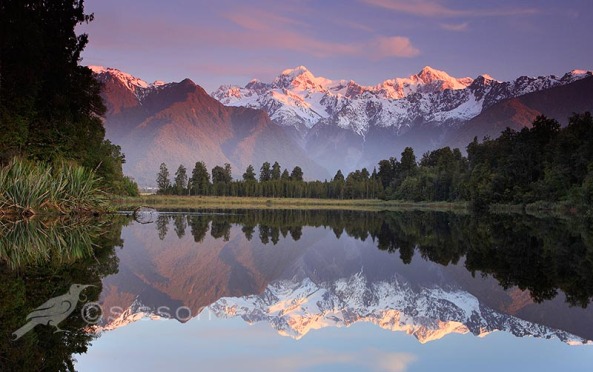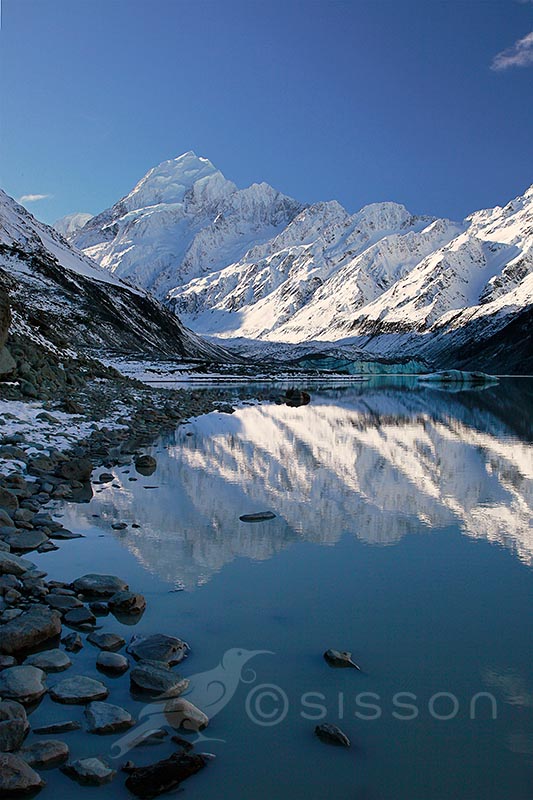This is not another of my ‘psycho-babble’ photographic-mindset posts dedicated to the virtues of navel gazing and cosmic contemplation. It is instead a quick discussion of the power of a reflection in landscape photography.
The idea for this post came to me after posting this image to Flickr.
I was pleasantly surprised by the amount of positive response that the image garnered – simply because it is a composition that has been shot to death over the years. The reality is that there are very few options for making reflection images at Lake Matheson and the aptly named ‘reflection island’, where this shot was made, is by far the best spot for taking in this stunning vista. Accordingly, there are many beautiful images of this scene – and I had assumed that there was little room for another :)
I should have known better – it is a great example of a natural reflection – one of our most popular photographic motifs. In fact, many of our best selling images contain reflections.
What Makes Reflection Photos So Compelling?
There is something intrinsically fascinating about a reflection. Our ‘eyes’ are instantly drawn to even the slightest hint of reflection in a shot and our attention lingers on these areas of an image for far longer than is often warranted.
Look at the Lake Matheson image for a moment and you’ll realise that you can barely tell reflection from reality – something about mirror images makes us want to unlock the illogical sight before us, we find them mildly challenging and most of all entertaining – in a novelty kind of way. (This particular reflection is so freakishly perfect that I often find that shop staff have stocked our postcards upside down in the stands!*)
I reckon it is a primordial – just crawled out of the swamp – caveman level response that compels us to look hard at reflections – our brain wants to make sense of what it is seeing – and what it is seeing is in many ways quite illogical.
To illustrate this point, cover the top of the Lake Matheson shot and just look at the bottom half. You are now looking at your world upside down – it’s actually a little unnerving (even for an incredibly urbane and sophisticated individual such as myself). Go back 20,000 years and it’s not hard to imagine my cave dwelling, mammoth-clubbing family members seeing this and running a mile, or sacrificing something (or someone?) to appease the angry upside down monster living in the lake.
Landscape Reflections – Simply Beautiful….
Putting aside my lengthy seque into ‘Clan of the Cavebear’ territory – reflections, particularly in landscape photography, are simply beautiful and visually captivating.
The innate visual ‘tension’ that a reflection imparts is an incredibly powerful tool for photographers. They can be used, as in this shot, to magnify natural beauty. They can be used to trick the ‘eye’ and they can be utilised as a clever suggestive tool – imagine a street scene with a reflection of the Eiffel Tower in a shop window – it adds a sense of place with subtlety and will often be far more powerful and informative than a ‘straight up’ shot of the same subject matter.
I always have a an eye open for a reflection, in both my landscape photography and my commercial photography – if you haven’t done so already, add reflections to your photographic repetoire!
If you found this useful, share the love and tell a friend via one of the buttons below :)
Cheers – Todd


